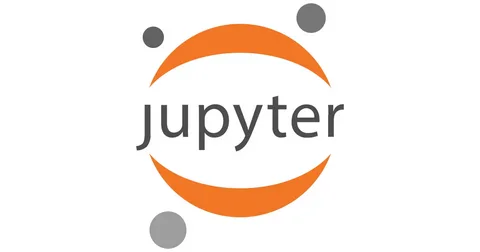Jupyter Notebooks have become an essential tool for data science professionals, allowing for interactive coding, visualisation, and documentation in a single environment. However, as data science workflows grow more complex, integrating Jupyter with modern IDEs has become crucial for efficiency and scalability. This article explores how developers can incorporate Jupyter Notebooks with modern IDEs, ensuring a seamless experience for coding, debugging, and collaboration. Enrolling in a Data Science Course in Hyderabad can provide deeper insights into these integrations and enhance your data science expertise.
Why Integrate Jupyter Notebooks with Modern IDEs?
Jupyter Notebooks are widely used in the data science community but have limitations regarding debugging, version control, and modular code development. Modern IDEs like PyCharm, VS Code, and IntelliJ offer robust features that address these issues. Integrating Jupyter with these IDEs improves productivity by enabling advanced debugging tools, seamless version control, and better code organisation. If you’re interested in mastering such integrations, a Data Science Course in Hyderabad can help you develop the required skills.
Integrating Jupyter with VS Code
Visual Studio Code (VS Code) is one of the most popular IDEs for Python development. It offers native support for Jupyter Notebooks. Developers can install the Jupyter extension from the VS Code marketplace, allowing them to open, edit, and execute Jupyter notebooks within the IDE. Features like IntelliSense, debugging support, and Git integration make VS Code a powerful choice for Jupyter Notebook users. Configuring Jupyter in VS Code is a valuable skill covered in a course.
Using Jupyter in PyCharm
PyCharm, a popular Python IDE, provides built-in support for Jupyter Notebooks in its Professional edition. By enabling Jupyter Notebook support, users can execute cells, debug code, and visualise data within the PyCharm environment. This integration ensures a smooth workflow by combining PyCharm’s powerful features with Jupyter’s flexibility. A Data Scientist Course can guide you if you’re keen on optimising Jupyter in PyCharm.
Connecting Jupyter with IntelliJ IDEA
IntelliJ IDEA, known for its advanced code navigation and debugging capabilities, also supports Jupyter Notebooks through plugins. Installing the Python plugin allows users to execute Jupyter notebooks within IntelliJ, benefiting from its powerful code completion and refactoring tools. This integration is particularly useful for developers working on large-scale data science projects. Understanding these integrations in depth is a key aspect of a Data Scientist Course.
Leveraging Jupyter in RStudio
For data scientists working with R and Python, RStudio provides seamless integration with Jupyter Notebooks. By configuring Jupyter as an external tool, RStudio users can run Python scripts within their data science projects. This feature enhances workflow efficiency and ensures Python and R-based data analysis compatibility. Enrolling in a Data Scientist Course can be highly beneficial in fully grasping the potential of such integrations.
Advantages of Jupyter-IDE Integration
Integrating Jupyter Notebooks with modern IDEs offers several advantages, including:
- Enhanced Debugging Capabilities: Modern IDEs provide advanced debugging tools unavailable in Jupiter’s native environment.
- Better Version Control: IDEs offer seamless integration with Git, enabling better collaboration and code management.
- Improved Code Organisation: IDEs allow for modular code development, making it easier to maintain large projects.
- Advanced Code Completion and Refactoring: Features like IntelliSense in VS Code and PyCharm’s refactoring tools improve coding efficiency.
These benefits make Jupyter-IDE integration a crucial skill for data scientists. If you want to enhance your workflow, a course will provide practical insights into these integrations.
Best Practices for Jupyter-IDE Integration
To ensure a smooth integration between Jupyter Notebooks and modern IDEs, follow these best practices:
- Install Necessary Extensions: Ensure your IDE supports Jupyter through extensions or plugins.
- Use Virtual Environments: Set up virtual environments to manage dependencies effectively.
- Leverage IDE Debugging Tools: Utilise built-in debugging features for troubleshooting errors efficiently.
- Enable Git Integration: Keep track of code changes using Git within your IDE.
- Optimise Performance Settings: Adjust memory and processing settings to handle large datasets.
Following these best practices can significantly improve your productivity. For hands-on experience with these techniques, consider enrolling in a Data Science Course in Hyderabad.
Challenges and Solutions in Jupyter-IDE Integration
While integrating Jupyter Notebooks with IDEs brings many benefits, some challenges exist:
- Performance Issues: Running large datasets in Jupyter within an IDE may slow down performance. Optimising memory usage can help mitigate this.
- Configuration Errors: Setting up Jupyter in an IDE requires proper path and dependencies configuration. Reading official documentation can help resolve such issues.
- Extension Compatibility: Some IDE extensions may not fully support Jupyter features. Testing different extensions can help find the best fit.
Understanding how to overcome these challenges is essential for data science professionals. Enrolling in a Data Scientist Course can equip you with the knowledge to navigate these issues effectively.
Conclusion
Integrating Jupyter Notebooks with modern IDEs enhances productivity, improves debugging capabilities, and streamlines data science workflows. Whether using VS Code, PyCharm, IntelliJ, or RStudio, setting up Jupyter correctly within an IDE allows for more efficient and scalable development. Data scientists can optimise their workflow for better performance and collaboration by understanding the best practices and addressing common challenges. To gain in-depth knowledge and hands-on experience with these integrations, consider joining a Data Science Course in Hyderabad.
ExcelR – Data Science, Data Analytics and Business Analyst Course Training in Hyderabad
Address: Cyber Towers, PHASE-2, 5th Floor, Quadrant-2, HITEC City, Hyderabad, Telangana 500081
Phone: 096321 56744


















